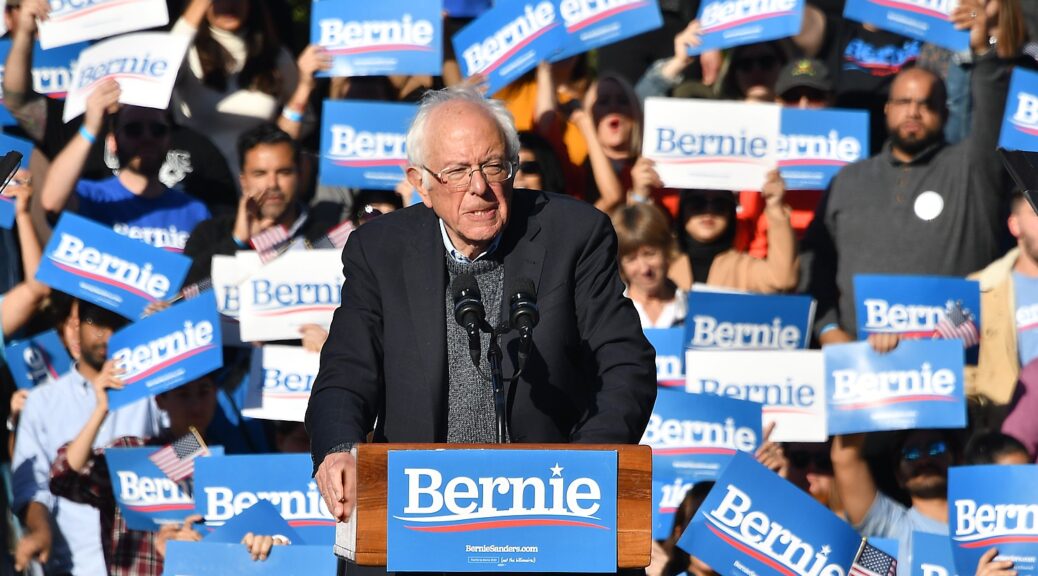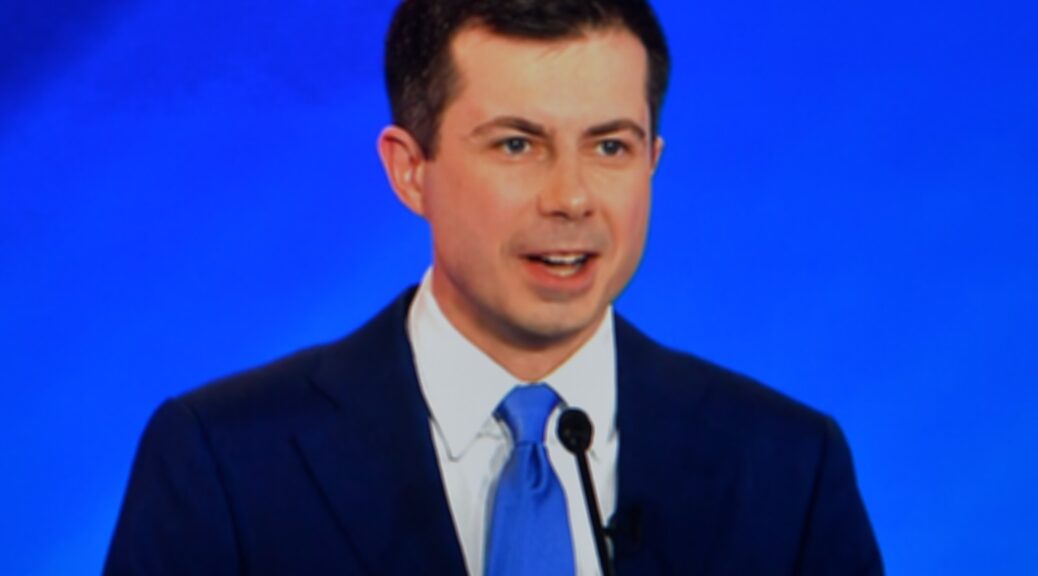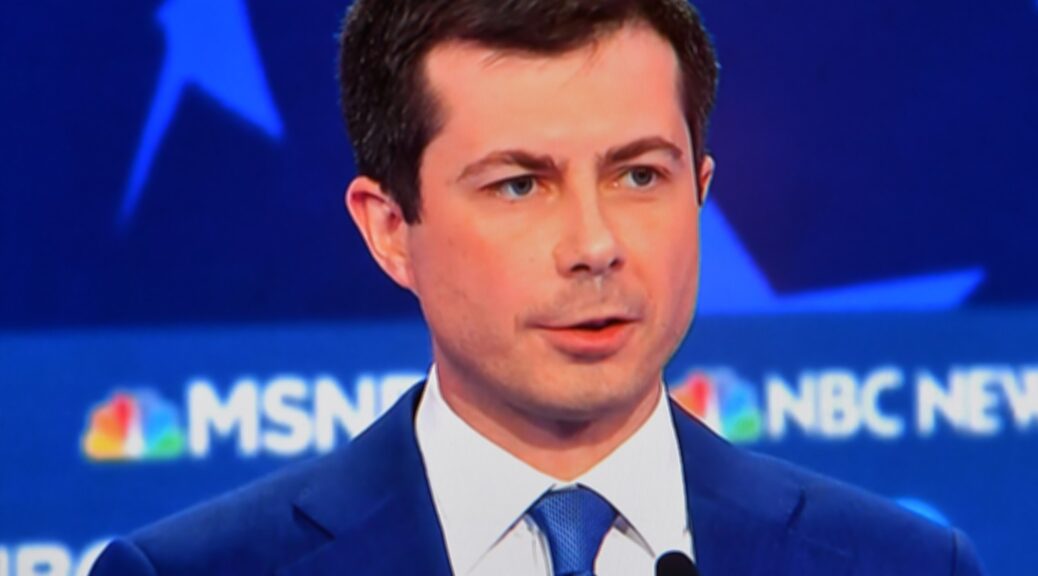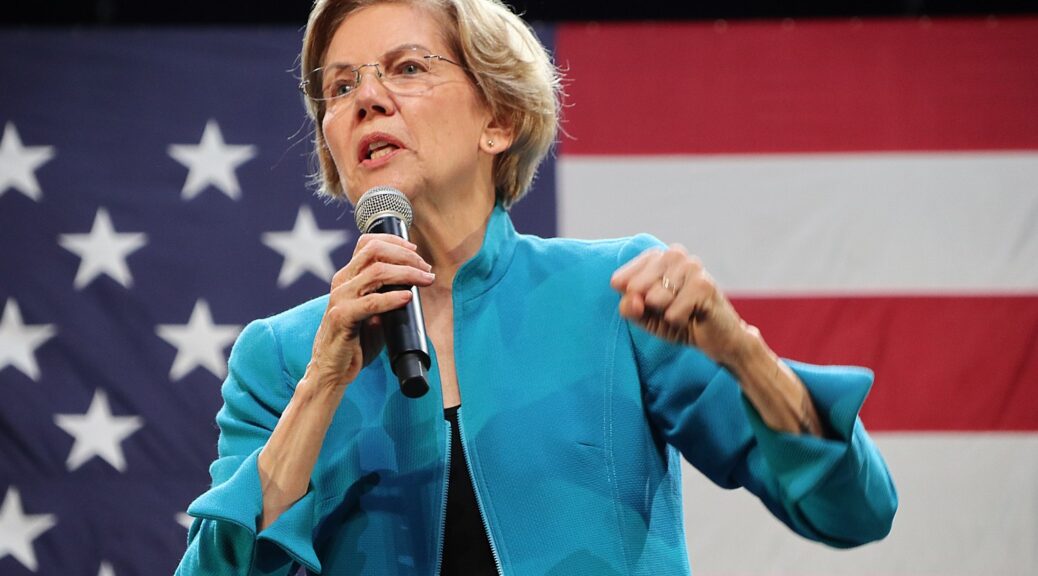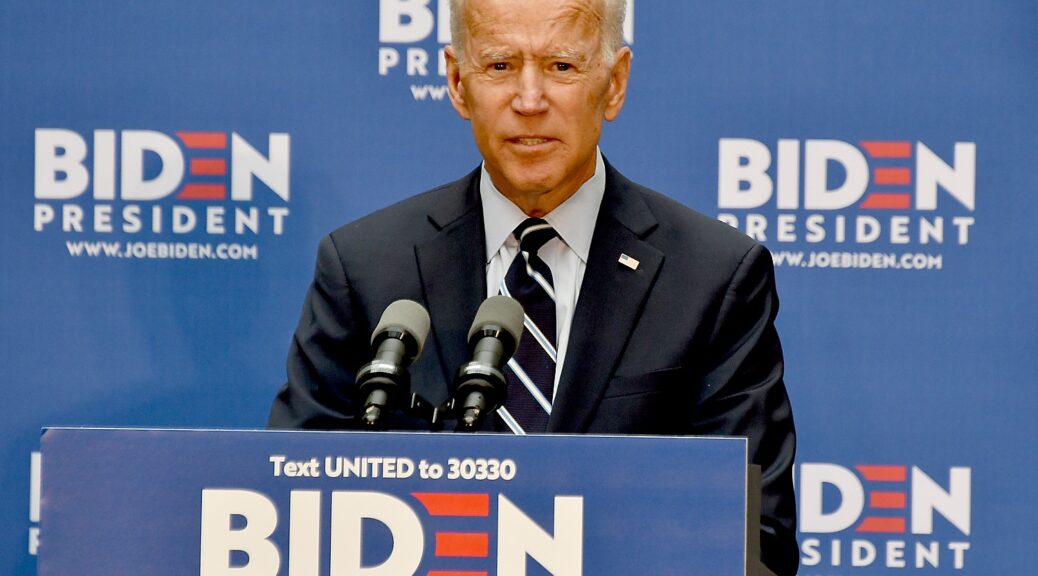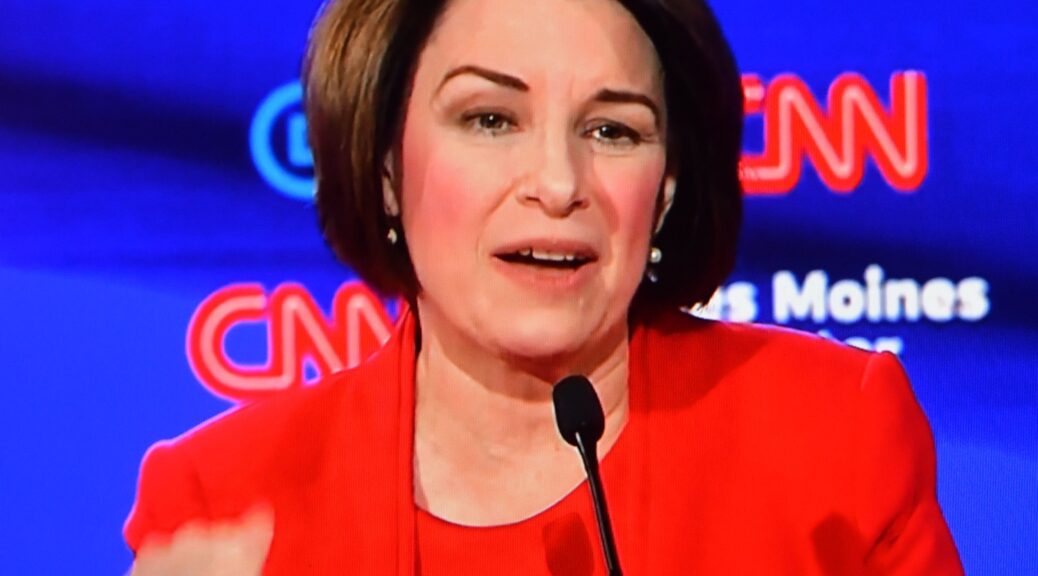
The vigorous contest of Democrats running for president has produced excellent policy proposals to address major issues. Senator Elizabeth Warren released her plan for Justice for Border Communities – a stark contrast to what Trump has done to punish asylum seekers, separating children from their parents, and most recently, using the coronavirus pandemic to raise the prospect of shutting the border to Mexico entirely.
“Our border region is made up of multinational, multicultural, economically vibrant communities that reflect the best of what our country can be. From affordable housing to investing in small businesses to stopping Trump’s monument to hate, we can make big, structural change to promote accountability, opportunity, and prosperity at the border,” Senator Warren stated.
This is from the Warren campaign:
Charlestown, MA – Senator Elizabeth Warren, running for president, released her plan to ensure accountability in our border communities by rolling back the Trump administration’s incessant militarization, immediately stopping the construction of Trump’s wall on the border between Mexico and the United States, creating a fair and welcoming immigration system, and respecting the rights of people and our fragile border ecosystem.
She will also work to build a 21st century border economy by boosting small businesses, growing access to financial services, closing the digital divide, uplifting labor and environmental protections through trade, and developing the green workforce of the future.
Some new proposals in her plan include:
In her first 100 days, she will convene a borderlands summit, bringing together federal, state, and local representatives, Tribal Nations, members of the business community, community organizations and stakeholders to undo the harm of the Trump administration and create more prosperity in the region.
She will create a new position in the White House that serves as an advisor to the president on border communities. This person will direct an Interagency Task Force on Border Community Prosperity and coordinate the entire federal government’s investment in our border communities.
She will end Trump’s deployment of military forces to the border.
She will immediately stop the construction of Trump’s wall on the border between Mexico and the United States. She will also work to repeal the sections of law that allow the federal government to waive federal procurement rules or environmental impact reviews.
Despite the immediate public health threat, the Trump administration is demanding that we cut spending elsewhere to pay for emergency funding we need to prepare for and respond to coronavirus — so she is introducing a bill in the Senate to redirect funding diverted to the wall toward coronavirus instead.
She will end Constitution-Free Zones: She will hold immigration enforcement to the same due process and standards as other law enforcement agencies — no more warrantless property searches, no more arbitrary stops, no more violations of basic Constitutional rights.
She will reverse the Trump administration’s policy giving Border Patrol agents the power to make “credible fear” determinations for asylum-seekers rather than asylum officers.
She will invest resources in more culturally competent asylum officers and immigration judges and better coordinate a full federal government response to the humanitarian crisis at the border, just like we would with FEMA under a natural disaster.
She will pardon those convicted of providing food and water to migrants — because no one should go to jail simply for providing humanitarian aid to another person in need.
She supports requiring Custom and Border Patrol (CBP) agents to wear body cameras, a best practice in local law enforcement that reduces use-of-force incidents and increases transparency.
She will crack down on dangerous anti-immigrant vigilante militias at the border, which often include members of hate groups or individuals with a history of violence, including against U.S. citizens.
She will create a Border Health Initiative within the Federal Office of Rural Health Policy to focus on strengthening these health institutions in ways that serve the unique needs of this region and its people.
She will build a 21st century border economy by investing in
our ports of entry.
The campaign recently did a Texas Latino Engagement tour —
and listened and learned from hundreds of Latino, Latina, and Latinx people in
San Antonio, Laredo, McAllen, Corpus Christi, and Houston.
Elizabeth will be in San
Antonio with former Secretary of HUD Julián Castro today.
Read her plan here and below
Justice for Border Communities
Communities along the U.S.-Mexico border represent a confluence of cultures, a
place where people of different walks of life all pursue the American Dream.
The true heart and soul of the border is found in the teenagers using their
quinceñeras to register their neighbors to vote, in the Good Samaritans leaving water
for desperate migrants in the desert, in the citizens of El
Paso-Juarez healing in the wake of a white
nationalist terrorist attack against Latinos, in community members and leaders
protesting wall construction in Tucson, and in Native Americans fighting to
protect their homeland and sacred sites.
Today the construction of Trump’s border wall is harming local communities
along our borders. The Trump administration has begun blasting at Organ Pipe
Cactus Monument without the permission of and
meaningful consultation with the Tohono O’odham Nation. Long-time
residents are seeing their property carved up. Wall
construction puts border communities at risk of severe flooding.
The Trump administration has ignored critical federal
environmental protections, damaging wildlife refuges. And there have
been far too many stories like that of Óscar Alberto Martínez Ramírez and
his 2 year old daughter Valeria, who drowned in the Rio Grande, or
of Gurupreet Kaur, who died
in the Arizona desert just one month shy of turning 7-years-old.
But the challenges at the border did not start with Donald Trump’s ignorance
and bigotry. For decades, decisions made in Washington have divided and
disrupted communities, cities, Tribal Nations, and families — many of whom
have lived along what is now the border for longer than the United States has
even existed.
The 15 million residents living
in our Southern borderlands — from Brownsville, Texas to San Diego, California
— deserve a champion and a partner in the White House. Building an
America that reflects our values means elevating the voices of those who have
traditionally been overlooked and underserved. We’ve got to make sure everyone
has a seat at the table, and that includes border communities and immigrant
advocacy groups. In my first 100 days, I will convene a borderlands summit,
bringing together federal, state, and local representatives, Tribal Nations,
members of the business community, community organizations, and stakeholders to
undo the harm of the Trump administration and create more prosperity in the
region. I will also create a new position in the White House that serves as an
advisor to the president on border communities. This person will direct an
Interagency Task Force on Border Community Prosperity and coordinate the entire
federal government’s investment in our border communities.
A Warren administration will ensure accountability in our border
communities by rolling back the Trump administration’s incessant
militarization of the border, creating a fair and welcoming immigration system,
and respecting the rights of people and our fragile border ecosystem. I’ll
fight for healthy and safe border communities with affordable housing,
high-quality education, health care, and economic opportunities. And together,
we’ll build a 21st century border economy by boosting small
businesses, growing access to financial services, closing the digital divide,
uplifting labor and environmental protections through trade, and developing the
green workforce of the future.
Accountability in Border Communities
We need a federal government that’s accountable to our border
communities. That means an immigration system that keeps families
together, preserves our security, grows our economy, honors our Constitution,
and reflects our values. That also means an approach to national security that
respects the rights of people and our fragile border ecosystems. As president,
my administration will:
Welcome those in need and protect rights and due process. My immigration plan commits
to decriminalizing migration, significantly reducing detention and ending
private detention facilities, providing rights and due process for all
immigrants, reaffirming asylum protections for those fleeing violence, and
ending policies like metering and the “Remain in Mexico” policy. As president,
I’ll also reverse the Trump administration’s policy giving Border Patrol agents
the power to make “credible fear” determinations for asylum-seekers rather than
asylum officers. A Warren administration will invest resources in more
culturally competent asylum officers and immigration judges and better
coordinate a full federal government response to the humanitarian crisis at the
border, just like we would with FEMA during a natural disaster. And I’ll pardon
those convicted of providing food and water to migrants — because no
one should go to jail simply for providing humanitarian aid to another person
in need.
Remake CBP and ICE in a way that reflects our values. We
spend billions of dollars each year on a
massive and cruel immigration detention and enforcement system that
breaks up families and keeps thousands locked up — with little evidence that it makes
our nation safer. A Warren
administration will reshape CBP and ICE from top to bottom, reducing
funding for detention and instead focusing their efforts on ports of entry and
homeland security efforts like screening cargo, identifying counterfeit goods,
and preventing smuggling and trafficking. And to change the culture, I’ll
insist on transparency and strengthen the authorities of independent internal
watchdogs to prevent future abuses. I’ll designate a Justice Department task
force to investigate accusations of serious violations, and give it independent
authority to pursue any substantiated criminal allegations.
The Supreme Court ruling that a family can’t seek damages after
their son was killed by a border patrol agent because he was on
the Mexican side of the border when the agent shot him shows us that our system
of accountability is broken. In spite of the Supreme Court’s decision, a few
steps to one side of the border or another should not serve to forfeit basic
rights. As president, I’ll work to reverse the decision legislatively in order
to ensure accountability for victims of border patrol violence — regardless of
the side of the border. Furthermore, I support requiring Customs and Border
Patrol (CBP) agents to wear body cameras, a best practice in local law
enforcement that reduces use-of-force incidents and increases transparency.
And as new technology is deployed, a Warren administration will monitor
violations of privacy and limit the use of facial-recognition software. Let
there be no ambiguity on this: if you are violating the basic rights of
immigrants, now or in the future, a Warren administration will hold you
accountable.
Stop Trump’s Militarization of the Border. Despite Trump’s
rhetoric, the people seeking asylum at the southern border are not a threat to
our national security. And Trump’s wall is a monument to hate — and only the
latest attempt to treat the southern border as a war zone rather than as a
vibrant community. Many of the apprehensions at the border are families and
children who commonly turn themselves in to
Border Patrol to apply for asylum. This is a humanitarian
crisis in need of medical doctors, immigration lawyers, and social workers —
not military troops. As president, I will end Trump’s deployment of
military forces to the border. I’ve listened to communities at the border when
they say we do not need Trump’s failed wall, and I will immediately stop the
construction of Trump’s wall on the border between Mexico and the United
States. I will also work to repeal the sections of law that allow the federal government to
waive federal procurement rules or environmental impact reviews.
Despite the immediate public health threat, the Trump administration is demanding
that we cut spending elsewhere to pay for emergency funding we need to prepare
for and respond to coronavirus — so I am introducing a bill in the Senate to
redirect funding diverted to the wall toward coronavirus instead. We need to
get our priorities straight and focus on keeping the American people safe,
rather than funding some useless vanity project. Let’s be clear: our border
communities are not a war zone.
End Constitution-Free Zones. CBP has the authority to
operate within 100 miles of any “external boundary” — an area deep into
the interior of the country that covers about 200 million people, including
9 of the 10 largest U.S. cities. The Border Patrol operates numerous
immigration checkpoints and regularly stops people to check their immigration
status, raising concerns about racial profiling and violations of the
Constitution’s Fourth Amendment protections. During natural disasters and daily
life, immigrant families are afraid to travel freely in their own communities.
Citizens of Tribal Nations such as the Tohono O’odham Nation who have tribal ID cards face
unnecessary hurdles with border patrol checkpoints. Agents also have the authority to enter private property
(except dwellings) 25 miles from the border, which includes almost
all of El Paso. There is no reason Border Patrol agents should have special
access to private property without receiving a warrant from a judge just like
the rest of law enforcement. As president, I will hold immigration enforcement
to the same due process and standards as other law enforcement agencies — no
more warrantless property searches, no more arbitrary stops, no more violations
of basic Constitutional rights. It’s time to rein in CBP, and ensure everyone’s
rights are respected.
Root Out White Nationalism. We need to call out white
nationalism for what it is—domestic terrorism. It is a threat to
American safety and security. In a Warren administration, we will use every
tool we have to defeat it, and that includes from within our military, our law
enforcement, and our immigration enforcement agencies. To start, I will
instruct these federal agencies to tighten their background check processes and
to better track incidents of bias crimes and reports of affiliation with white
nationalist or neo-Nazi groups in their ranks. Extremist ideology is a threat
to our values, and it has no place inside our government. As part of my plan to
reshape ICE and CBP, I’ve said that I will strengthen the authorities of
independent internal watchdogs to prevent future abuses. This includes tasking
the Inspectors General at both agencies to focus explicitly on reports of bias
crimes or racism on the job. A Warren administration will have zero tolerance
for these types of infractions.
From the 1918 Porvenir massacre through
today, we must also recognize the long history of racist violence along
the U.S.-Mexico border. Tragically, we have seen how this horrific
history repeated itself just last August, when a white nationalist, directly
echoing the rhetoric of President Trump, drove hundreds of miles to commit an
act of terror against the people of El Paso. As I laid out in my plan to combat white nationalism,
combatting white nationalist crime will be a top priority for the Departments
of Justice and Homeland Security in a Warren administration. My administration
will also work with federal and local law enforcement to crack down on
dangerous anti-immigrant vigilante militias at the border, which often include members of hate groups or
individuals with a history of violence,
including against U.S. citizens.
Respect Tribal Sovereignty. My plan for public lands
includes aggressive steps to
stop private interests from pillaging sacred lands. I will use all legal
authorities, including the Native American Graves
Protection and Repatriation Act, to protect sacred sites like Organ
Pipe. And absent extraordinary circumstances, respect for tribal sovereignty
means that no project, development or federal decision that will have a
significant impact on a tribal community, their lands, resources, members or
religious practices, should proceed without the free, prior, and informed
consent of the Tribal Nation concerned. I have also called for a new Sacred Lands Religious
Freedom Restoration Act to dramatically improve the
ability of Tribal Nations to block the imposition of development, extraction,
and land use decisions with respect to tribal lands.
Fighting for Safe, Healthy, High-Quality Living on the Border
A generation of barely budging wages and rising costs for basics like housing,
health care, child care, and education have squeezed family budgets. Many
families living in communities at our borders are hanging on by their
fingernails.
A lack of affordable housing and decades of systemic discrimination has
driven hundreds of thousands of people,
predominantly U.S. citizens of Mexican-descent, in Texas, Arizona, New Mexico,
and California to live in neighborhoods, called colonias, without basic
necessities like potable water, electricity, and safe housing. Border
communities have uninsured rates that are much higher than the national average
and have some of the highest rates of chronic diseases like diabetes in the
country. In the colonias in Texas, over 50% of adults do not have a
high school diploma.
A Warren administration will:
Invest in safe and affordable housing for all. My Housing Plan for America invests
$500 billion over the next ten years to build, preserve, and rehab more than
three million units that will be affordable to lower-income families —
including $523 million to create 380,000 affordable rental homes in rural
communities and $2.5 billion to build or rehabilitate 200,000 homes on
tribal lands, where overcrowding, homelessness, and substandard
housing have reached crisis levels. My plan will lower rents by 10%, reform
land-use rules that restrict affordable housing construction and further racial
segregation, and take a critical first step towards closing the racial wealth gap.
My plan to protect and empower renters tackles the growing cost of rent,
strengthens fair housing law and enforcement, fights for a nationwide right to
counsel for low-income tenants in eviction proceedings, and creates a national
small dollar grant program to help make sure families aren’t evicted because of
financial emergencies.
My administration will also take on “land contracts”
agreements, predatory loans that are frequently targeted at
communities of color and are prevalent in border communities. In
these contracts, tenant-buyers can be subject to unjust eviction
proceedings, homes can be in such bad condition they’re basically
uninhabitable, interest rates exorbitantly high, and in the case of some
colonias, developers have failed to provide basic infrastructure
like a sewer system or paved roads. And because of the “forfeiture clause”
embedded in these kinds of agreements, if tenants fall behind on these
high-interest payments, lenders can seize the property — and keep the payments
that have been made as “liquidated damages.”
Texas is one state that has moved toward increasing protections after
a certain amount has been paid, but there’s more we can do. I’ll choose a CFPB
Director committed to reining in land contracts, work with states to require
that these contracts be recorded to collect better data and formalize land
titling, and strengthen protections and rights of these residents to ensure
their property isn’t lost to exploitative practices and can be passed onto
future generations.
Protect Clean Water. Clean water is
vital to our health and welfare and to our economy. But decades of
environmental racism have allowed corporate polluters to
pump dangerous amounts of pollution into our border communities and unaccountable developers to
leave these communities without the resources and infrastructure to take it
on. 30% of people living in colonias
don’t have safe drinking water. Meanwhile, border communities have
been battling toxic waste dumping in
their neighborhoods. And yet, Trump’s 2021 budget proposal eliminates much of
the federal money allocated for water and wastewater projects that could have
been used to work towards clean drinking water in border regions.
A Warren administration will invest in our nation’s water systems. I have
committed to fully capitalize the Drinking Water State Revolving Fund and the
Clean Water State Revolving Fund to refurbish old water infrastructure and
support ongoing water treatment operations and maintenance, prioritizing the
communities most heavily impacted by inadequate water infrastructure. I will
also fully enforce Safe Drinking Water Act standards for all public water
systems and aggressively regulate chemicals that make their way into our water
supply, including from agricultural runoff. I’ll restore all funding to water
and wastewater projects the Trump administration has proposed to eliminate.
And, for the thousands of people who rely on private
sources for drinking water, a Warren administration will fight for
adequate funding so that everyone can have access to safe water. I’ll also make
giant agribusinesses pay the full costs of the environmental damage they wreak
on the border communities that surround them by closing the loopholes that they
use to get away with polluting and by beefing up enforcement of the Clean Air
and Clean Water Acts against them.
Guarantee High-Quality Health Care. Border communities face
unique health care challenges. Poor coverage means that people cross from
Imperial County, California or Southwest Arizona to Los Algodones, Mexico
for affordable dental care.
The majority of counties along the
Southern border have limited access to maternity care. People
in need of reproductive care in the Rio Grande Valley are facing barriers to care due to clinic
closures, traveling hundreds of miles, and facing long waiting periods.
Health care is a human right and that’s why we need
Medicare for All. Under Medicare for All, every single person in this
country will be able to see the doctor they need and get their recommended
treatments. As president, I will immediately act to lower the cost of
prescription drugs, using every available tool to bring pressure on the big
drug companies and bring down the high costs of many common prescription drugs,
including Insulin. And within 100 days, I’ll work with Congress to expand
coverage to every American by expanding Medicare and creating a Medicare for
All option that is free for all kids and families at or below 200 percent of
poverty.
While we work to deliver Medicare for All, a Warren
administration will roll back the Trump administration’s efforts to rip health
coverage away from people. The Trump administration’s reinterpretation of
Section 1557 would undermine critical nondiscrimination protections, weakening
requirements to make health information language-accessible. As president, I will
direct HHS to reinstate the Obama administration’s 2016 guidance that fully
upholds civil rights and nondiscrimination protections. I’ll roll back the
Trump administration’s Public Charge rule change, which is harming immigrants
with disabilities and forcing immigrant families to choose between staying
together and ensuring their children can get critical services. And I’ll
reverse the Trump administration’s harmful Medicaid policies, like work
requirements and block grants, that take coverage away from low-income
individuals and families.
Strengthen the Health System. While coverage is critical,
it’s only part of ensuring access to high-quality care. We also have a
responsibility to make sure that places that have experienced a loss in
services or are otherwise medically underserved get support to improve their
health systems and meet the needs of their communities.
That’s why I’ve committed to protecting health care in rural communities by
creating a new designation under Medicare for rural hospitals, ending the
harmful effects of consolidation, and dramatically increasing funding for
Community Health Centers. I will also establish a $25 billion dollar capital
fund to support a menu of options for improving care in health professional
shortage areas, including: constructing a new facility like a
Community Health Center, Rural Health Clinic, School-Based Health Center, or
birthing center; expanding capacity or services at an existing clinic;
establishing pharmacy services or a telemedicine program; supporting a diabetes
self-management education program; improving transportation to the nearest
hospital; or piloting models like mobile clinics and community paramedicine
programs. A Warren administration will also expand our health care workforce by
investing more resources in building the pipeline of culturally-competent and
language-inclusive medical professionals in rural areas and other areas with
shortages, from physicians to promotoras.
But we also need to support robust public health efforts to keep these
communities healthy and prepared to handle potential outbreaks — and to work
in partnership with the international community, including Mexico, in our
global health response. That’s why I’ve committed to fully fund the critical
agencies that support our public health infrastructure. To
double down on this commitment in the border region, I will also create a
Border Health Initiative within the Federal Office of Rural Health Policy to
focus on strengthening these institutions in ways that serve the unique needs
of this region and its people.
Fight for high-quality education from the earliest years through college. 33 of the 44 counties along the
Southern border are non-metropolitan counties. Today, a majority of rural communities lack
sufficient access to child care. My plan for Universal Child Care will
provide high-quality child care free for millions and affordable for everyone.
My administration will also work closely with local providers and tribal
governments to make sure there are high-quality child care options available in
every community — including home-based child care services. And as part of a
comprehensive early childhood education system, I will ensure all children can
attend free high-quality universal pre-K.
As president, I will make a historic $800 billion investment
in our nation’s public schools, supporting students in the classroom
and preparing them for college and career readiness. I’ll invest at least an
additional $50 billion in school infrastructure across the country – targeted
at the schools that need it most. My Environmental Justice plan establishes
a lead abatement grant program focused on schools. And I will fully fund the Bureau of Indian
Education schools to support major construction and repair
backlogs.
I’m also committed to protecting English Language Learners by enforcing their
rights to meaningful access to rigorous coursework, teachers, special education
services, and integration with the rest of the student body, while fostering
their home language. And I will protect the rights of immigrant students,
ensuring that all immigrant children have access to a quality education, no
matter their native language, national origin, or immigration status.
Border states are
facing an acute teacher shortage.
My administration will treat teachers and staff like the professionals they are
by strengthening the ability of educators to organize and bargain for just
compensation and ensure that educators aren’t drowning in debt. I’ll also build
a more diverse teacher and school leadership pipeline by investing in Grow Your
Own and teacher residency programs. And I will push to fully fund the Teacher
Quality Partnership program to support teacher residency programs in high-need
areas, like rural communities, and in areas of expertise like Special Education
and Bilingual Education.
My student debt cancellation and
universal public college plan will cancel up to $50,000 in
student loan debt for more than 95% of Americans who carry it and make two-year
or four-year public college or technical school free. My plan also makes a
minimum $50 billion investment in HBCUs, Hispanic Serving Institutions, Tribal
Colleges and Universities, and other Minority-Serving Institutions.
Prevent Gun Violence in Border Communities and in Mexico. After
Trump, we’ll have work to do to restore our relationship with our Mexican
neighbors. One area where we can begin to make improvements immediately is
in stopping the flow of American guns
to Mexico. As Mexico struggles with record violence, Americans must
face the fact that our weak gun laws have not only fed an epidemic of gun
violence at home, but are also a leading driver of instability among our
neighbors. This instability in turn is displacing people across Mexico and
elsewhere in Latin America, feeding the humanitarian crisis that border
communities in both the U.S. and Mexico are facing today. I will fight to end gun violence,
recognizing that this is part of addressing the root causes of migration and improving
our relationship with Mexico. And as president, I will pass a new federal
anti-trafficking law making clear “straw purchases” are a federal crime and
prosecute gun traffickers by instructing my Attorney General to go after the
transnational gun trade with all the resources of the federal government.
Building a 21st Century Border Economy
A thriving border economy is crucial to the economic wellbeing of the rest of
our country. And when Trump has threatened to shut it down, the ramifications
have been felt quickly and acutely. In 2018, a 5 hour border crossing closure
at San Ysidro in California — the busiest land border crossing in
the world — cost local businesses $5.3 million. We
need a strong border economy that works for everyone. That means investments in
local small businesses, growing access to financial services, closing the
digital divide, trade that uplifts labor and environmental protections, and
developing the green workforce of the future.
Boosting Small Businesses. Small businesses are
essential to the prosperity of border communities, but these businesses have
been harmed by increased border militarization and Trump’s reckless tariff by tweet approach
to trade. People along the U.S.-Mexico border also confront barriers to
accessing the capital and financial services necessary to start and grow their
businesses — barriers that disproportionately affect Latino,
Native American, and Black entrepreneurs. My comprehensive agenda to boost
America’s small businesses will level the playing field for
small business owners on the border by providing access to credit, helping
small businesses deal with regulatory requirements, and unleashing the full
purchasing power of the federal government to support small businesses.
Protecting and Expanding Financial Services. The number of
rural counties without a locally owned community bank has doubled since 1994, and
border communities are increasingly becoming banking
deserts. I’ve proposed allowing the U.S. Postal Service to partner with
local community banks and credit unions to provide access to
low-cost, basic banking services online and at post offices. A Warren
Administration will also strengthen lending to small businesses in underserved
areas by expanding support for Community Development Financial Institutions,
which provide an important source of funding for
women, people of color, and rural communities. As president, my
administration will also protect immigrant families sending remittances by
enacting stronger rules at the Consumer Financial Protection Bureau around
remittances to ensure fees are transparent, and I will oppose President Trump’s
proposed tax on remittances that targets wire transfers to Mexico, Latin
America, and the Caribbean to pay for his wall.
Extend Broadband to Border Communities. The communities
along the U.S.-Mexico border have some of the lowest levels of internet
connectivity in the nation. This digital divide is a
major barrier for people to find jobs, students to complete homework, small
business to connect to new markets, and it holds back the entire community.
That’s why as president, I will make it clear in federal statute that
municipalities have the right to build their own broadband networks and
establish a new $85 billion federal grant program to
massively expand broadband access across the country. I will also require all
telecommunications services to contribute fairly into the Universal Service
Fund to shore up essential universal service programs that provide subsidies to
low-income individuals, schools, and libraries to increase broadband adoption –
because every home in America deserves a fiber broadband connection at a price
families can afford.
Decreasing Wait Times. Under the Trump Administration, wait times
at ports of entry are dramatically increasing, reducing trade and commerce
and even impacting air quality for
surrounding communities. Every day almost $2 billion worth of products crosses
the U.S.-Mexico border, but delays in Texas can exceed 10 hours — this is
unacceptable. In places like Deming, New Mexico, students pushed across the
border because of unaffordable housing or to be with deported family
members get up at dawn to wait hours
through highly-militarized security checks to make it to school on
the U.S.-side on time. An estimated 40,000 children cross the
U.S.-Mexico border for school every day. First, we will
invest in dedicated pedestrian lanes for both U.S. citizens and students, and
the “All Lanes Open Initiative” so that there is better traffic flow
during the morning rush and expand the program to include evenings. We also
need to completely repeal the “hardening measures,” such as concrete
barriers topped with razor wire, and limit “tactical exercises” that create
choke points and slow down traffic. With the passage of the USMCA, we will
increase the number of custom officials and invest in modern technology to more
efficiently and effectively inspect and verify goods.
Leveling the Playing Field with Trade. As a Senator, I voted
for the USMCA — the revised NAFTA agreement. I supported the agreement because
it made some improvements for American workers, farmers, and consumers, and
Mexican workers too. It guarantees the right to organize for Mexican workers,
provides for new investments in combating pollution such as $300 million
to stop cross-border sewage flows,
and strengthens diplomatic ties with our neighbors at a time that President
Trump seeks to divide us.
But we will do much better for border communities in a Warren administration.
We need a new approach to trade that works for Americans who have been left
behind, including the communities on the U.S.-Mexico border. Instead of pursuing
a race to the bottom when it comes to worker’s rights and environmental
protection, it is time to use our leverage of the American market to encourage
other countries, including Mexico, to elevate their policies. When we raise
labor and environmental standards worldwide, we help millions of people living
abroad and let American workers compete on a more level playing field.
Building the Green Workforce of the Future. Border states
are emerging as leaders of the new green economy. Texas is the leading producer of
wind energy in the country, California is the leading producer
of solar energy, and clean energy investments in New Mexico and Arizona are on the
rise. To really bend the curve on climate, we’ll need sustained big, structural
change across a range of industries and sectors. My administration will commit
to investments in retraining, joint labor management apprenticeships, and
creating strong career pipelines to ensure a continuous supply of skilled,
available workers. And, we will look for every opportunity to partner with high
schools and vocational schools to build pathways to the middle class for kids
who opt not to go to college. Outside experts that have looked at my ideas for
a Green New Deal to analyze how they will drive job creation have estimated
that they will create 10.6 million new green jobs.
That means millions of new clean energy jobs in border states and honoring our
commitments and a just transition for fossil fuel workers, so that no one is
left behind.
Honoring our Border Servicemembers and Veterans. Military
bases and military families are key drivers of local border economies, from the
Marine Corps Air Station in Yuma to Laughlin Air Force Base in Del Rio. Rather
than defunding military projects — like military base child care
facilities — to build Trump’s “wall”, we should be investing
in military readiness, infrastructure, and veterans and their families. From
military housing and child care to a 21st century VA system, I will keep our
promise to care for our nation’s veterans, service members, and military
families.
Read the plan here


